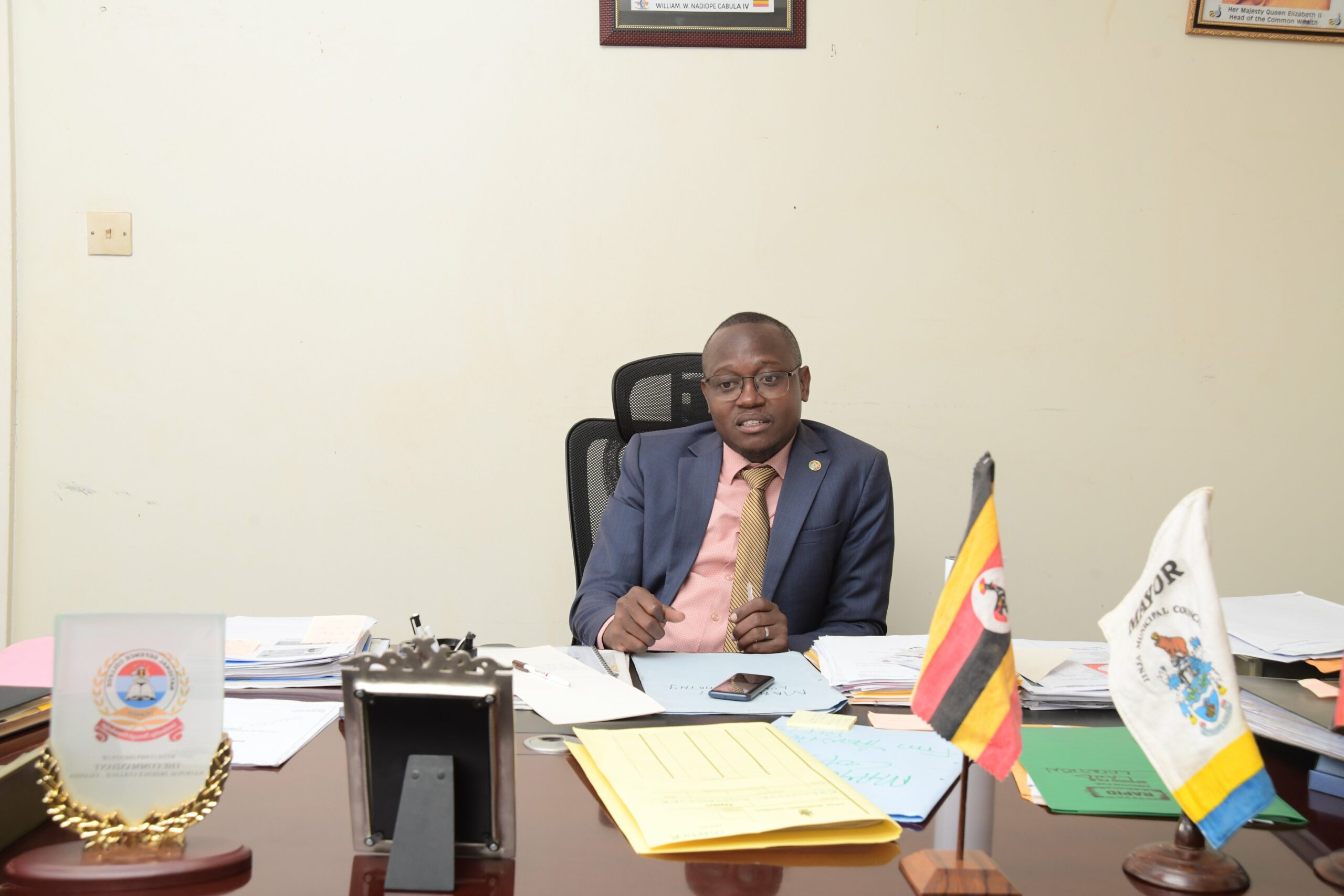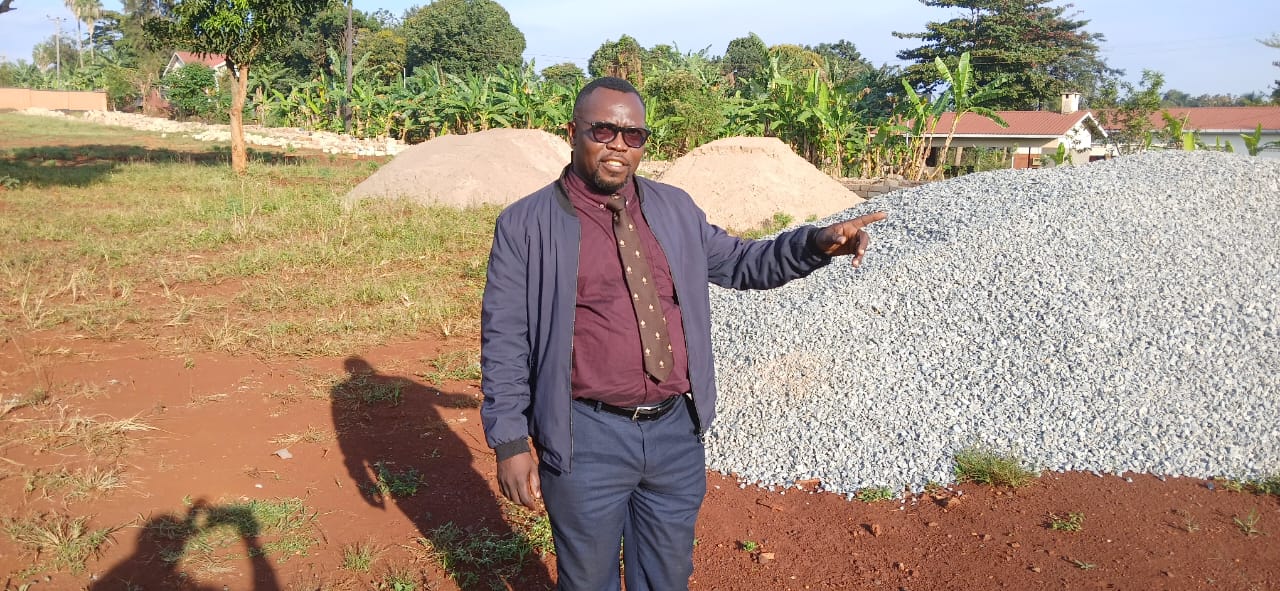Jinja City Mayor, His Worship Alton Peter Kasolo, has expressed concern over the growing apathy among city residents who recklessly dump solid wastes on road verges and islands.
In an exclusive interview, Kasolo, who stunned the NRM party and swept votes during the NUP wave of 2021 general elections to become the first mayor of Jinja with a new city status, lamented that some individuals mistakenly believe that garbage disposal is solely the responsibility of the city Council.
The mayor’s comments come in the wake of the recent tragedy at Kiteezi in Kampala due to the collapse of the landfill, which has now sparked off debates from people across the nation.
Kasolo emphasized that solid waste management should not be politicized but rather addressed jointly with technical experts.
Garbage disposal and management remains a big challenge in Jinja City, where it’s not unusual for residents to witness heaps of garbage for days before they are collected and taken to the dumpsite.
Jinja City has a poorly managed landfill, which is technically a dumpsite but with controversy hanging over it as some individuals are claiming ownership over it.
Reports suggest that some people have encroached 5 acres where bananas have been planted.
The heavily encroached land was originally 17 acres but is now estimated to be below 10 acres due to unethical and illegal transactions by some officials at Town Hall.
The matter is before the High Court of Uganda, where one tycoon dragged the Council and some individual officials over the land he purported to have lawfully bought.
Citing instances where individuals driving posh cars throw empty bottles and other wastes to the streets/roads through their car windows, the mayor said the act is a sign of poor attitude but also mental illness.
He also targeted those who engage in the primitive open defecation and urination, as well as individuals who use drainage channels as makeshift washrooms.
“…how does an adult man undresses or unzips and defecate by the road side or urinate on public walls or trees in the 21st century and you think you are punishing your leaders when actually you are responsible for public health issues…”the youthful former radio presenter-turned politician lamented.
Kasolo, who also calls himself Okocha, urged residents to take responsibility for their actions and adopt cleanliness, encouraging them to work together towards a healthier and more sustainable Jinja City.
Feeling visibly unhappy, Kasolo also lambasted individuals who litter streets and roads with waste, including used mineral water bottles, despite driving posh cars.
He expressed disgust at the blatant disregard for public cleanliness and hygiene.
The strong stance aims to raise awareness and promote a culture of cleanliness, encouraging the city dwellers to take responsibility and adopt cleaner habits for a sustainable city.
However, Kasolo is also not happy with the Central Government for its Centralized Revenue Collection or Revenue Centralization, which is being implemented by the Ministry of Finance, Planning, and Economic Development (MoFPED).
“…how do you claim you have given me powers without the corresponding finance? Now it defeats the otherwise very good policy of decentralization, which Ugandans had embraced wholeheartedly…”, Kasolo cried.
Decentralisation,as introduced in Uganda, is a policy of devolving power, authority, and resources from central government to local governments (districts, Cities, Municipalities,Town Councils and Sub counties) to enable them manage their own affairs and deliver services to their communities.
The technical definition of decentralization in Uganda is a system of government where power, authority, and resources are transferred from central governments, enabling them to plan, budget and implement development programmes and services, while ensuring accountability and transparency.
Uganda’s decentralization policy aims to promote local self-governance, enhance participation and ownership, improve service delivery, increase accountability, and reduce poverty and inequality.
However, the centralized revenue collection and allocation policy seems to contradict the principles of decentralization, as it limits local governments’ control over their finances and hinders their ability to respond promptly to local needs.
Jinja City’s own landfill site at Masese has been deemed a mere dumping site by experts failing to meet international standards.
What Is a Landfill?
According to experts, a landfill in a technical sense is a disposal site for waste management where waste is deposited and buried in a controlled environment.
It’s an engineered facility designed to manage and dispose of solid waste, typically non-hazardous municipal waste, in a way that minimizes environmental impacts.
A landfill typically consists of: Cell a designated area where waste is deposited and buried; Liner-an impermeable layer, usually made of clay or synthetic materials, that prevents leachate (toxic liquid waste) from contaminating groundwater;Leachate collection system: a network of pipes that collects and treats leachate;Gas collection system; a system that captures and utilizes methane gas produced by decomposing waste; Cover material: soil or other materials used to cover the waste, controlling the odor and pest issues.
Landfills are designed to contain waste in a controlled environment, prevent environmental pollution, minimize health risks, and manage waste disposal in a sustainable way.
According to Ernest Nabihamba, the Jinja City Natural Resource/Environment Officer, modern landfills that he knows and has seen in the Netherlands and other countries are highly regulated and engineered to ensure environmental protection and safety.
Nabihamba says landfill has a lifespan of about 15 years, after which it must be closed or decommissioned and a new one is established, otherwise it’s a bomb waiting to explode sometimes with fire causing devastating human lives.
Landfills differ significantly from the older, uncontrolled dumpsites or open dumps like it’s the case in Uganda’s urban areas where there is no single landfill but mere dumpsites.
It’s not clear whether the Central government of President Yoweri Museveni will listen to the pleas of local government leaders and allow them to have control over their locally generated revenues.
Do you have a story in your community or an opinion to share with us: Email us at Submit an Article








